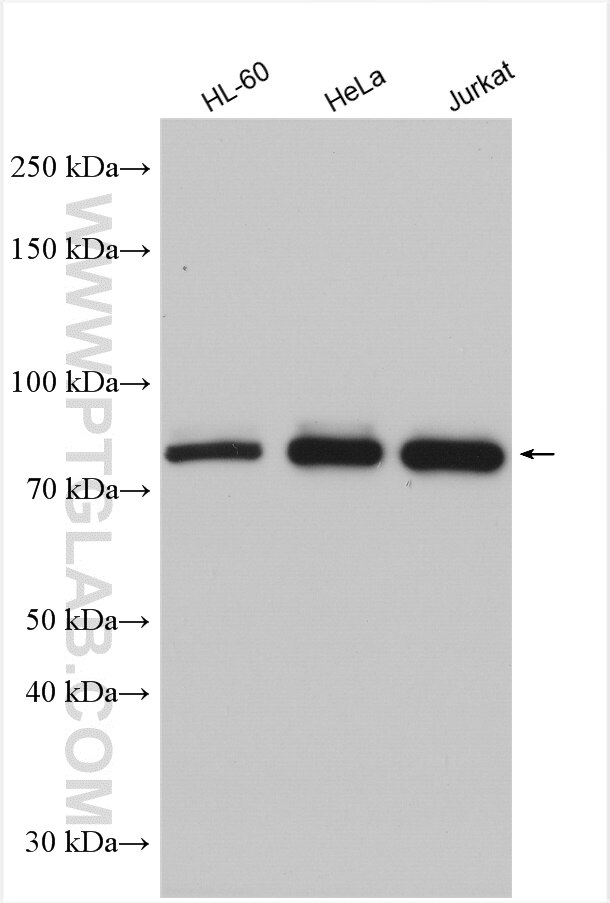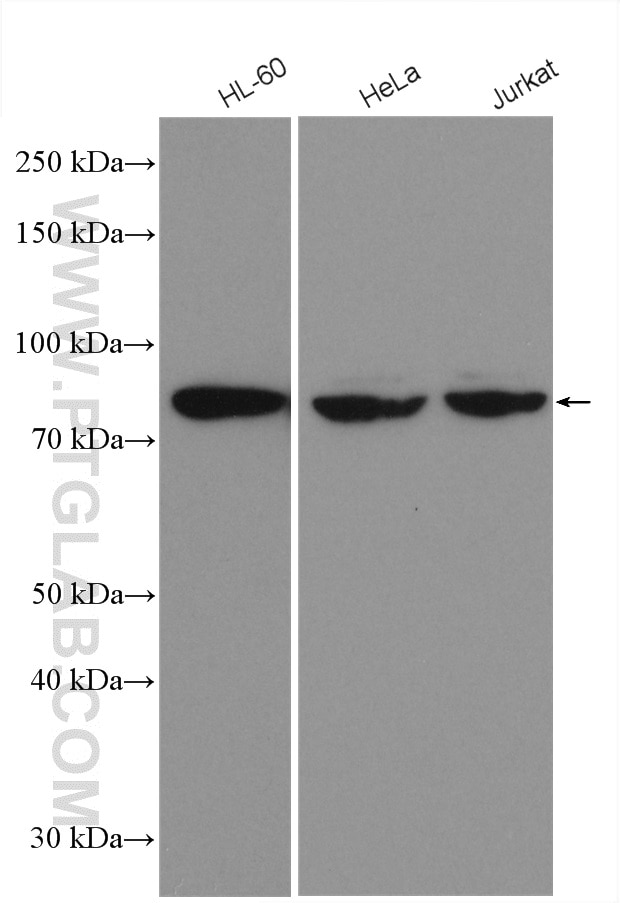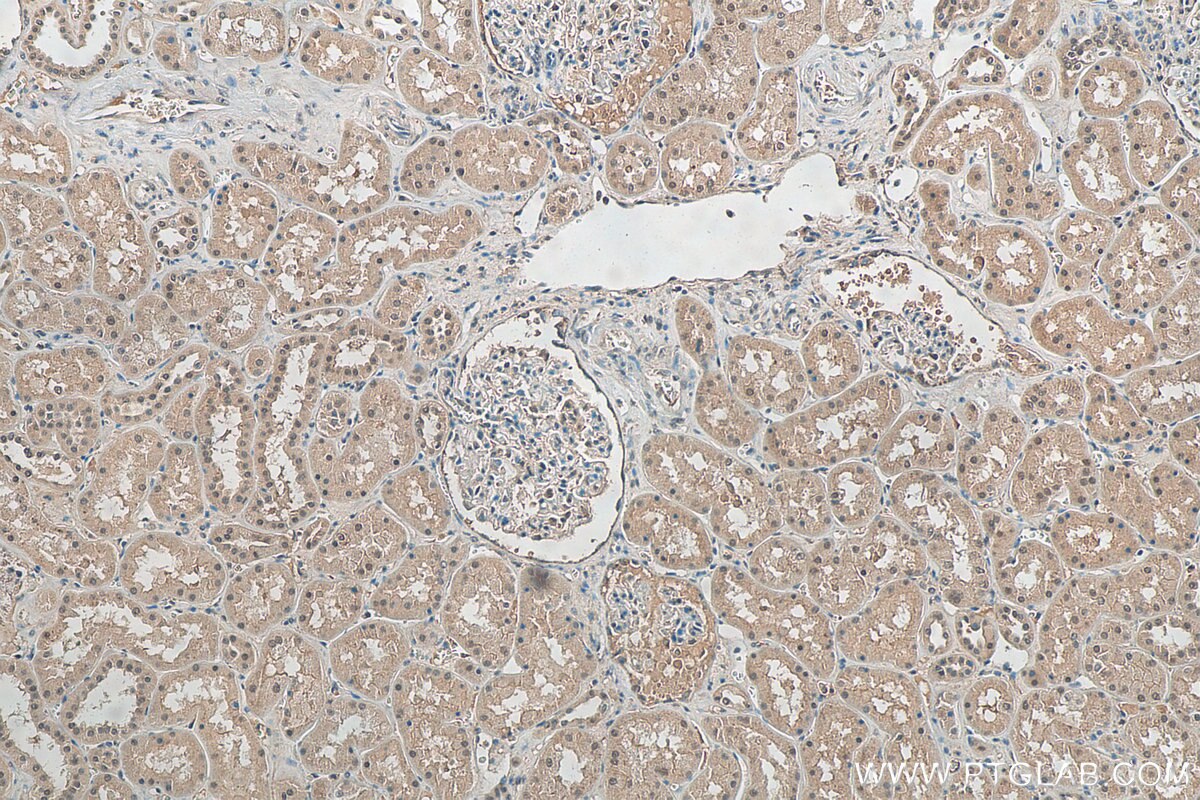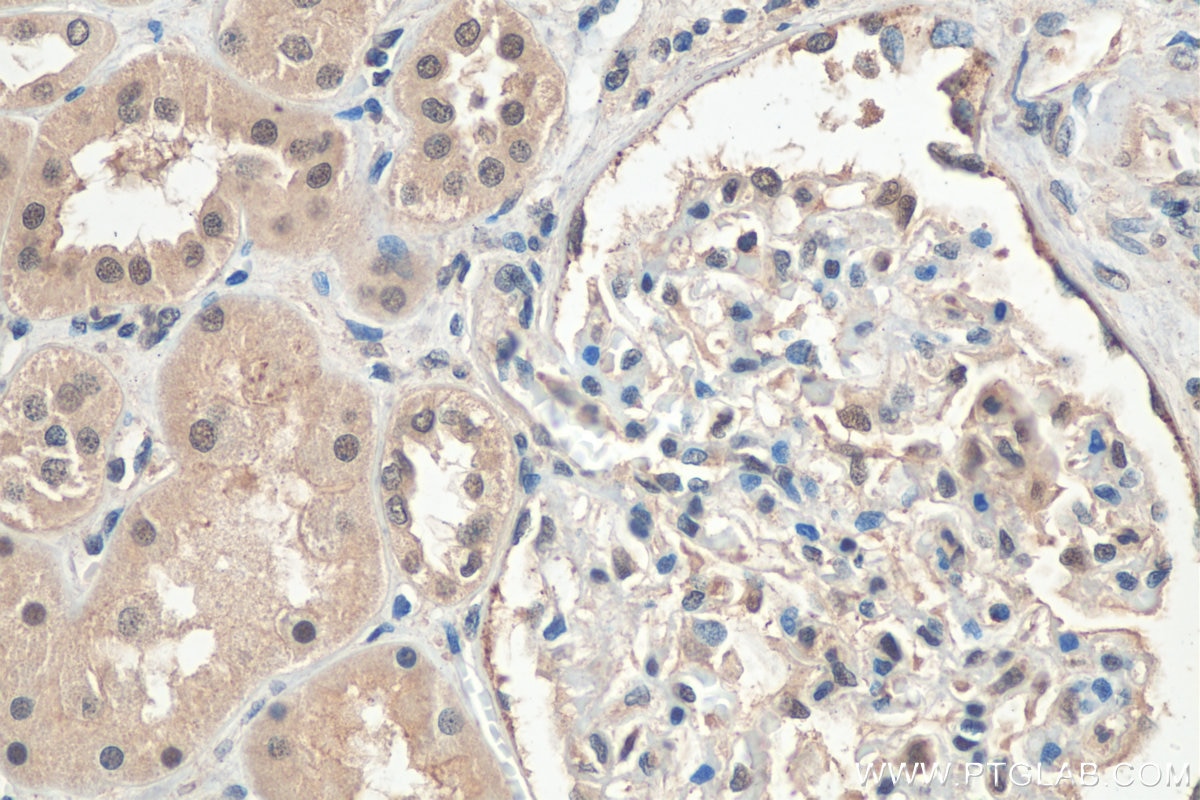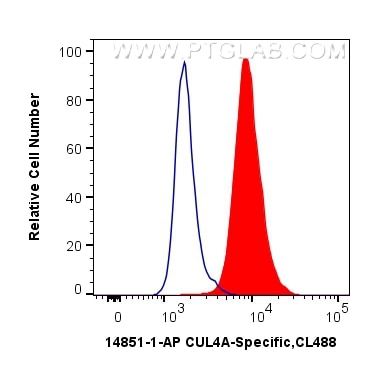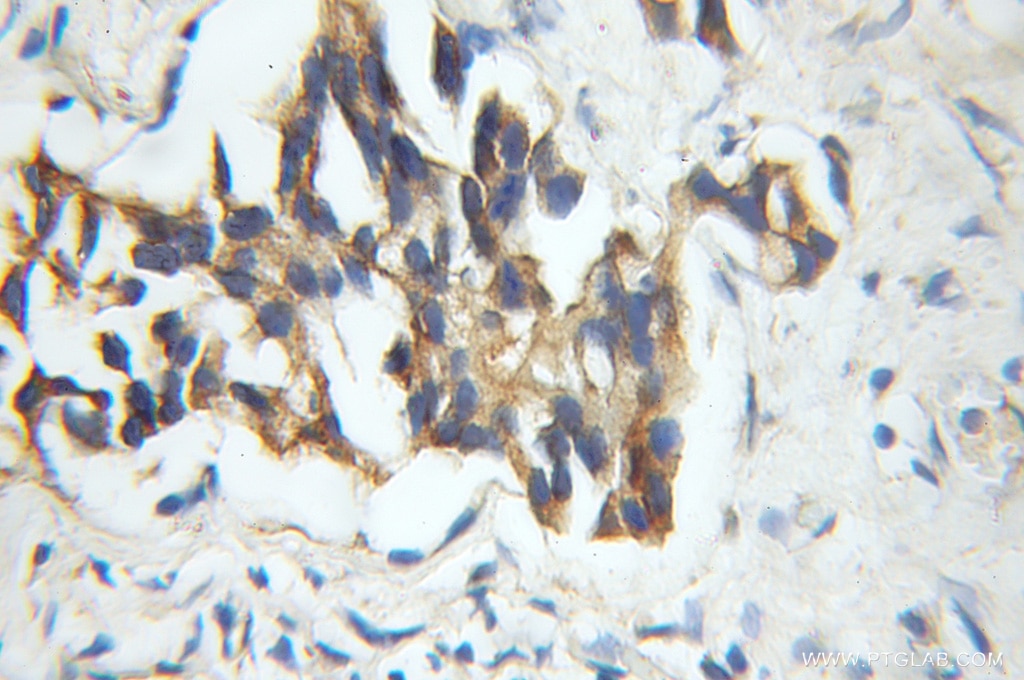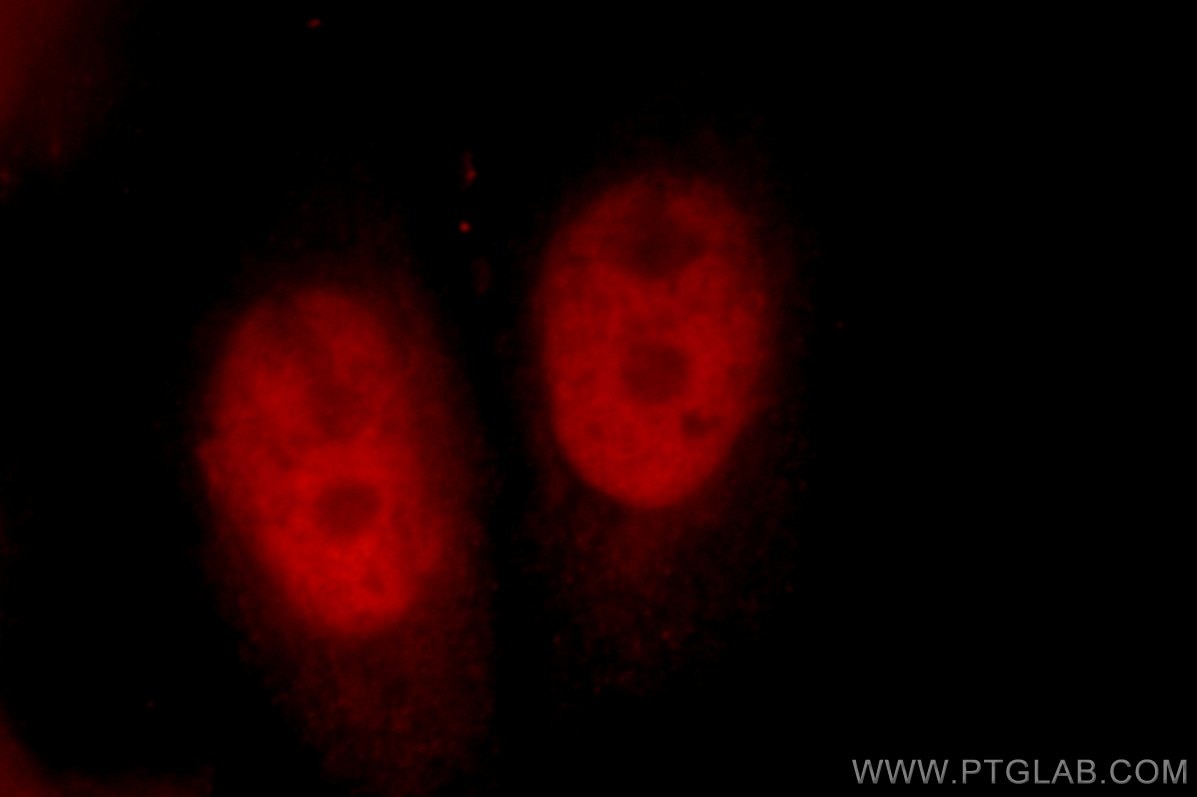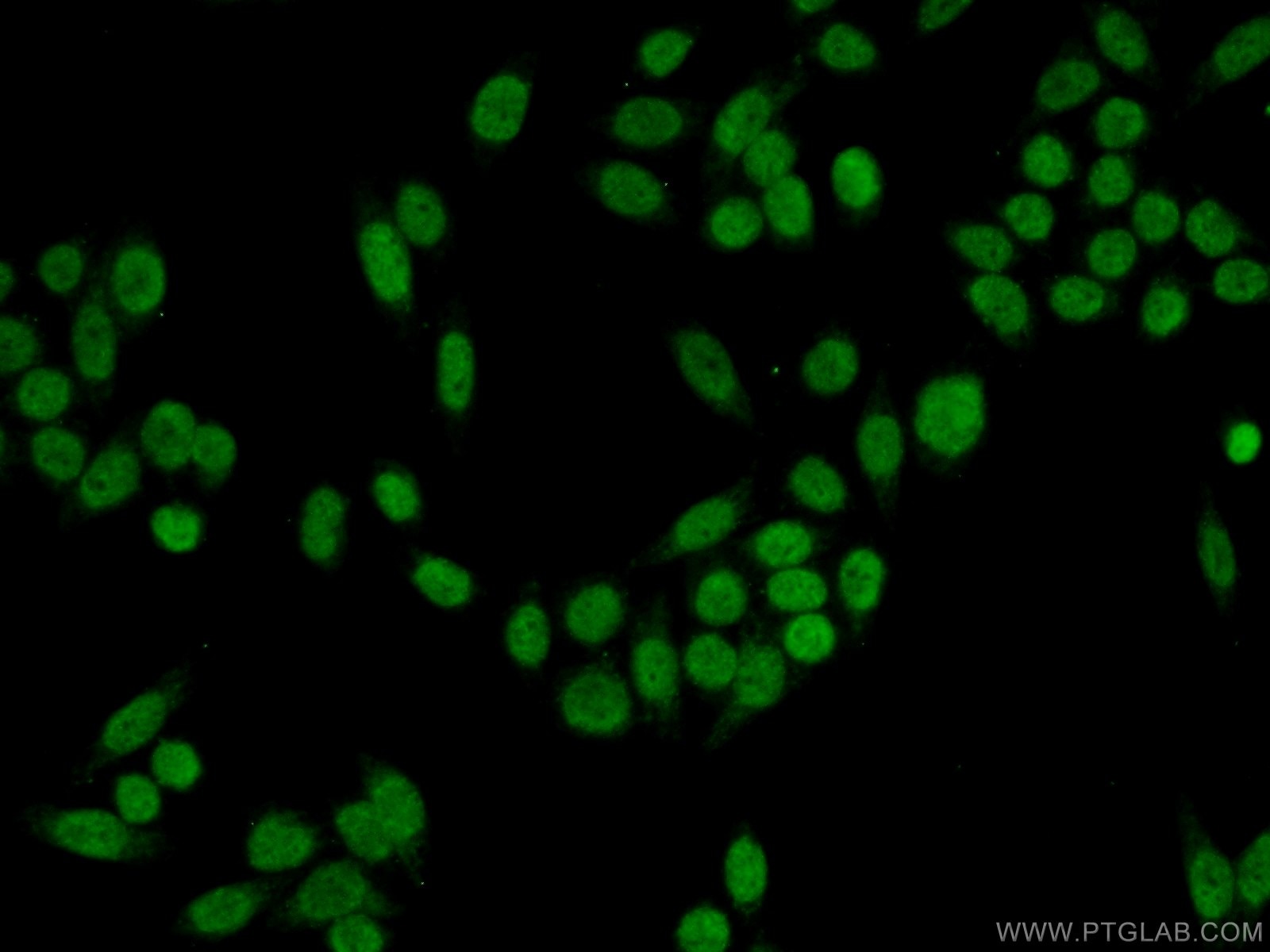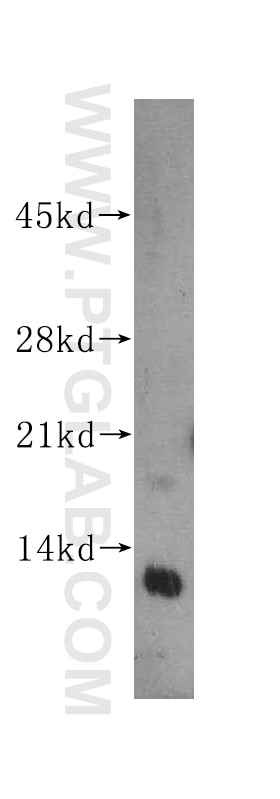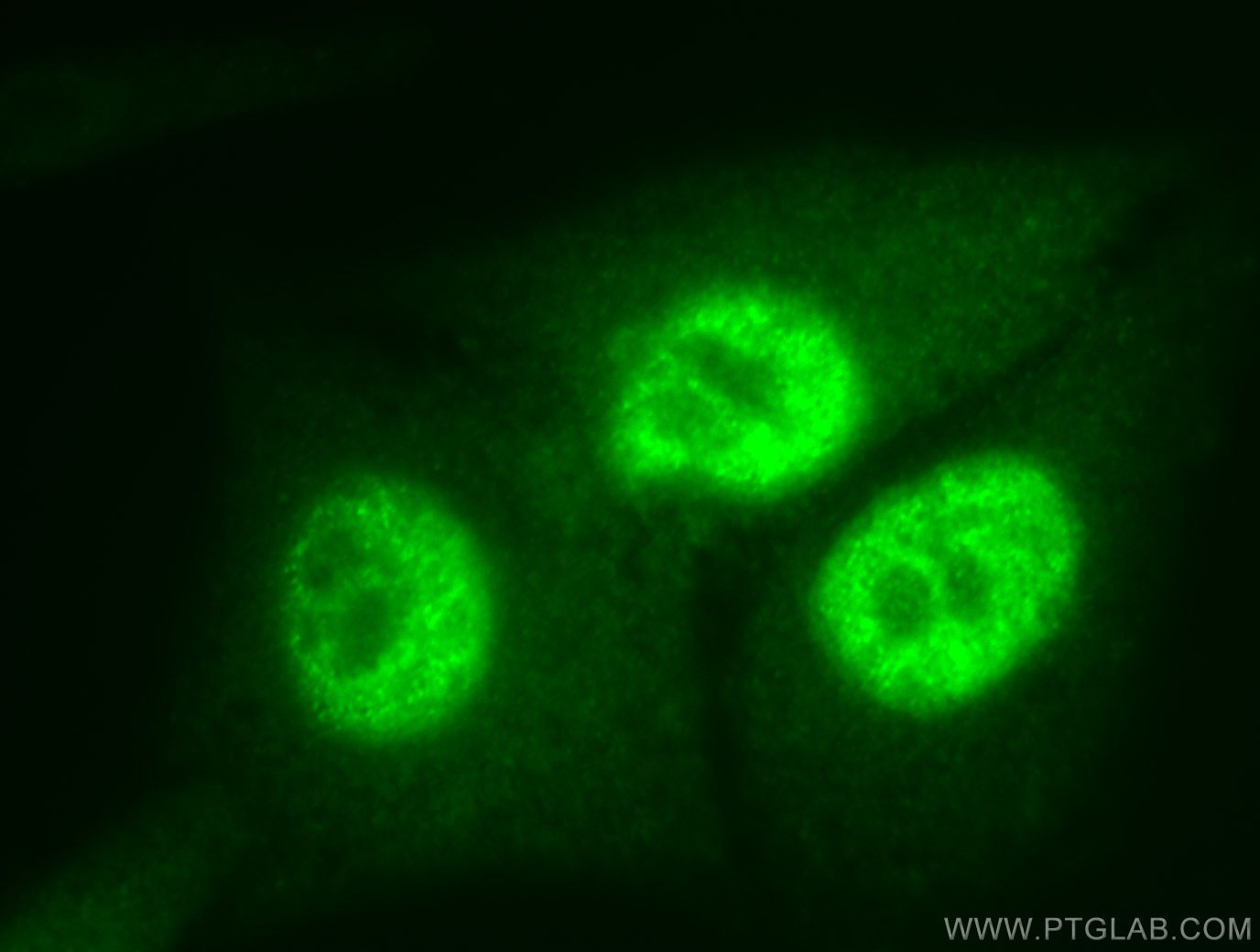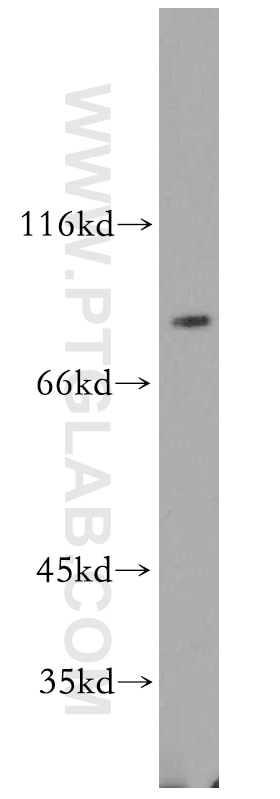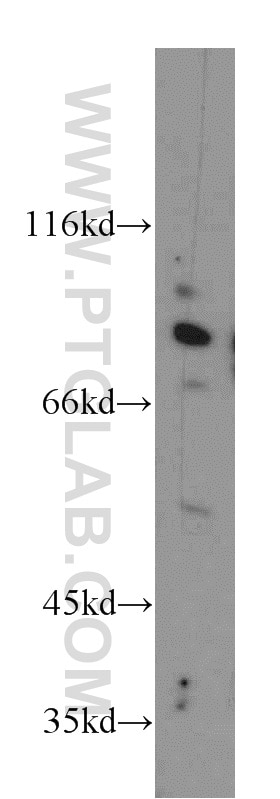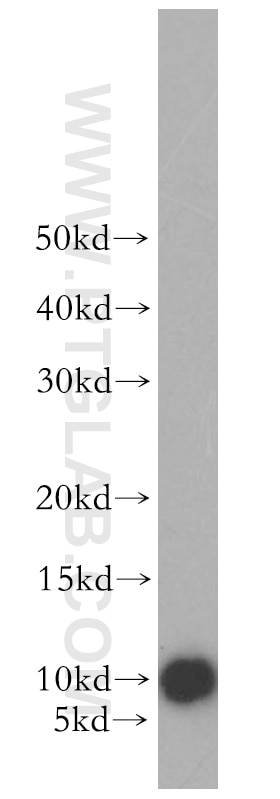- Phare
- Validé par KD/KO
Anticorps Polyclonal de lapin anti-CUL4A-Specific
CUL4A-Specific Polyclonal Antibody for WB, IHC, FC (Intra), ELISA
Hôte / Isotype
Lapin / IgG
Réactivité testée
Humain, rat, souris
Applications
WB, IHC, FC (Intra), IP, ELISA
Conjugaison
Non conjugué
N° de cat : 14851-1-AP
Synonymes
Galerie de données de validation
Applications testées
| Résultats positifs en WB | cellules HL-60, cellules HeLa, cellules Jurkat |
| Résultats positifs en IHC | tissu rénal humain, il est suggéré de démasquer l'antigène avec un tampon de TE buffer pH 9.0; (*) À défaut, 'le démasquage de l'antigène peut être 'effectué avec un tampon citrate pH 6,0. |
| Résultats positifs en FC (Intra) | cellules HepG2, |
Dilution recommandée
| Application | Dilution |
|---|---|
| Western Blot (WB) | WB : 1:2000-1:10000 |
| Immunohistochimie (IHC) | IHC : 1:50-1:500 |
| Flow Cytometry (FC) (INTRA) | FC (INTRA) : 0.40 ug per 10^6 cells in a 100 µl suspension |
| It is recommended that this reagent should be titrated in each testing system to obtain optimal results. | |
| Sample-dependent, check data in validation data gallery | |
Applications publiées
| KD/KO | See 9 publications below |
| WB | See 23 publications below |
| IHC | See 1 publications below |
| IP | See 1 publications below |
Informations sur le produit
14851-1-AP cible CUL4A-Specific dans les applications de WB, IHC, FC (Intra), IP, ELISA et montre une réactivité avec des échantillons Humain, rat, souris
| Réactivité | Humain, rat, souris |
| Réactivité citée | rat, Humain, souris |
| Hôte / Isotype | Lapin / IgG |
| Clonalité | Polyclonal |
| Type | Anticorps |
| Immunogène | Peptide |
| Nom complet | cullin 4A |
| Masse moléculaire calculée | 88 kDa |
| Poids moléculaire observé | 77-88 kDa |
| Numéro d’acquisition GenBank | NM_003589 |
| Symbole du gène | CUL4A |
| Identification du gène (NCBI) | 8451 |
| Conjugaison | Non conjugué |
| Forme | Liquide |
| Méthode de purification | Purification par affinité contre l'antigène |
| Tampon de stockage | PBS avec azoture de sodium à 0,02 % et glycérol à 50 % pH 7,3 |
| Conditions de stockage | Stocker à -20°C. Stable pendant un an après l'expédition. L'aliquotage n'est pas nécessaire pour le stockage à -20oC Les 20ul contiennent 0,1% de BSA. |
Informations générales
Cullin proteins assemble a large number of RING E3 ubiquitin ligases, participating in the proteolysis through the ubiquitin-proteasome pathway. Two cullin 4 (CUL4) proteins, CUL4A (87 kDa) and CUL4B(104 kDa), have been identified. The two CUL4 sequences are 83% identical. They target certain proteins for degradation by binding protein DDB1 to form a CUL4-DDB1 ubiquitin ligase complex with DDB. They form two individual E3 ligases, DDB1-CUL4ADDB2 and DDB1-CUL4BDDB2 in this process. CUL4A appeared in both the nucleus and the cytosol, suggesting a more complex mechanism for entering the nucleus. CUL4B is localized in the nucleus and facilitates the transfer of DDB1 into the nucleus independently of DDB2. This antibody is specially against CUL4A,but not CUL4B.
Protocole
| Product Specific Protocols | |
|---|---|
| WB protocol for CUL4A-Specific antibody 14851-1-AP | Download protocol |
| IHC protocol for CUL4A-Specific antibody 14851-1-AP | Download protocol |
| FC protocol for CUL4A-Specific antibody 14851-1-AP | Download protocol |
| Standard Protocols | |
|---|---|
| Click here to view our Standard Protocols |
Publications
| Species | Application | Title |
|---|---|---|
Signal Transduct Target Ther Targeting CRL4 suppresses chemoresistant ovarian cancer growth by inducing mitophagy
| ||
Nat Immunol COP9 signalosome subunit 8 is essential for peripheral T cell homeostasis and antigen receptor-induced entry into the cell cycle from quiescence. | ||
Mol Cell Negative regulation of AMPK signaling by high glucose via E3 ubiquitin ligase MG53.
| ||
Dev Cell AMBRA1 interplay with cullin E3 ubiquitin ligases regulates autophagy dynamics.
| ||
J Exp Clin Cancer Res PHB2 promotes SHIP2 ubiquitination via the E3 ligase NEDD4 to regulate AKT signaling in gastric cancer | ||
